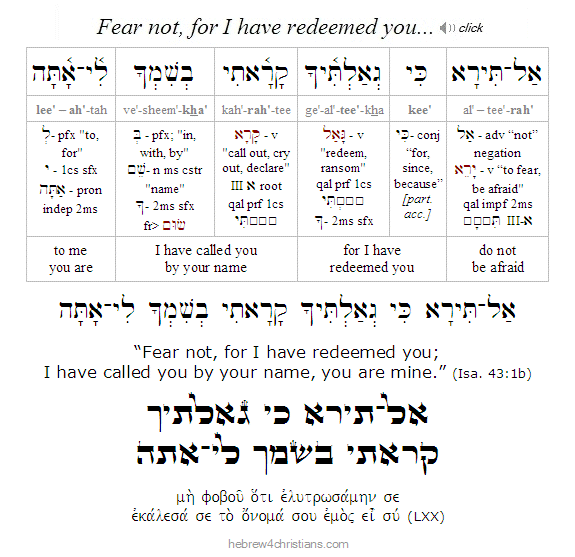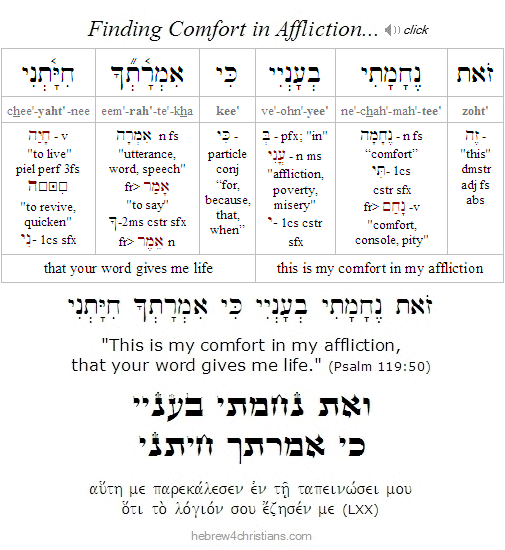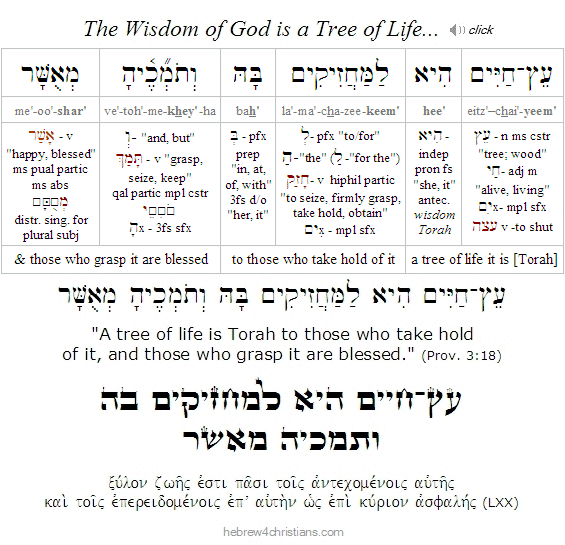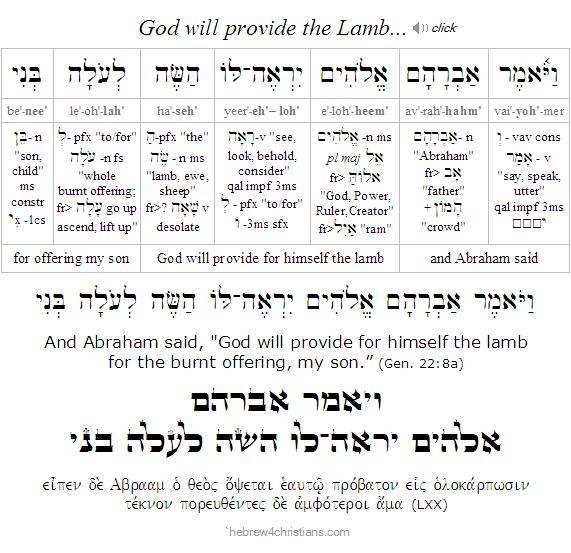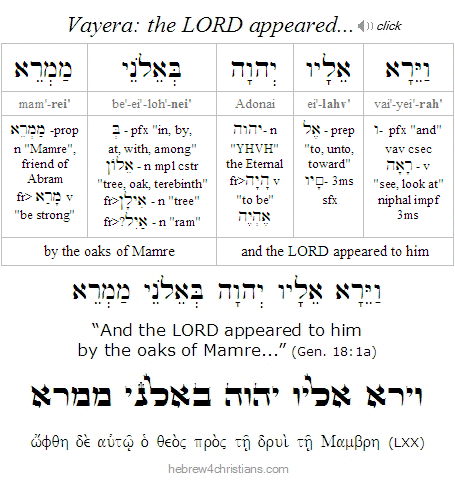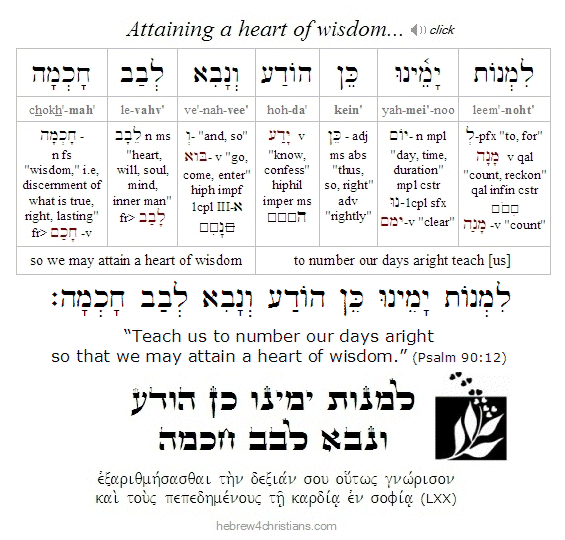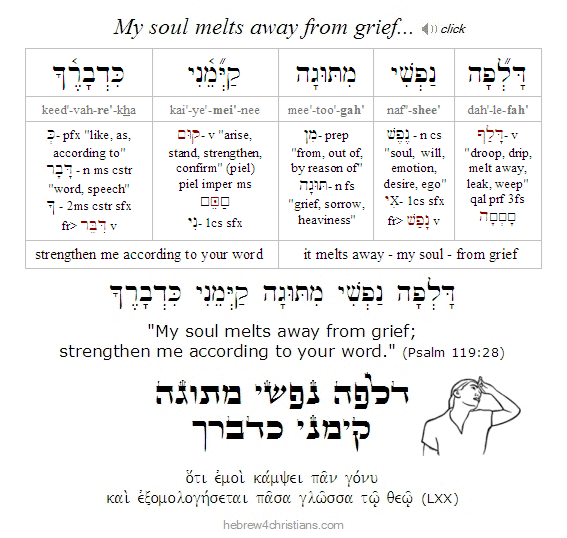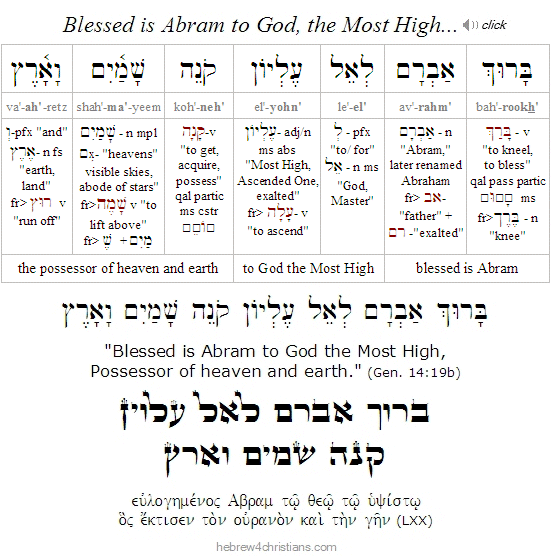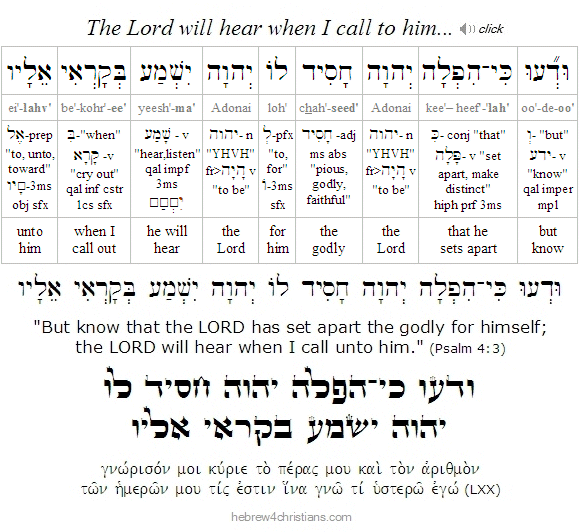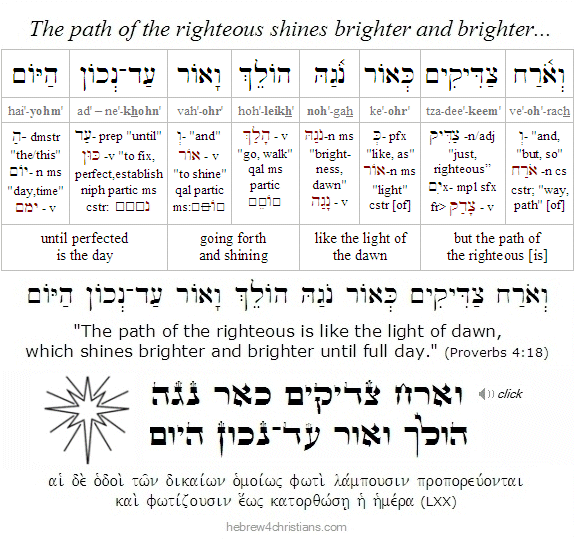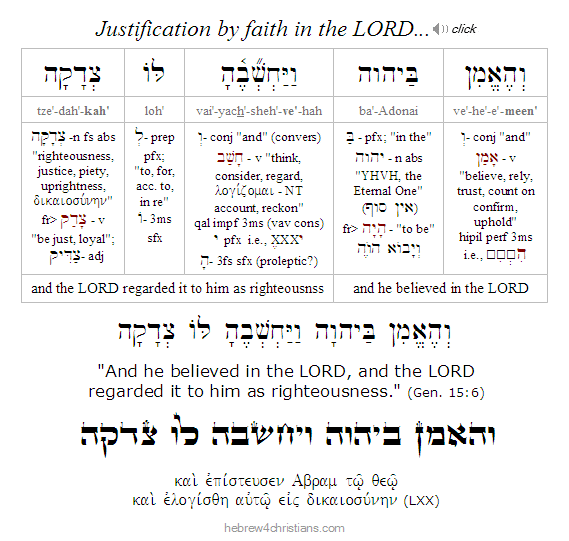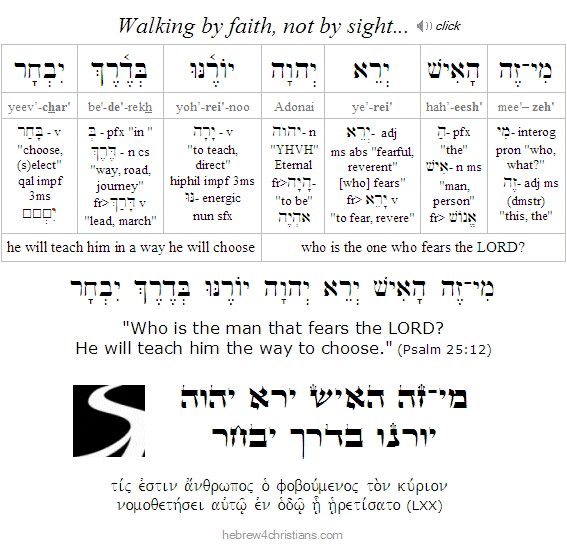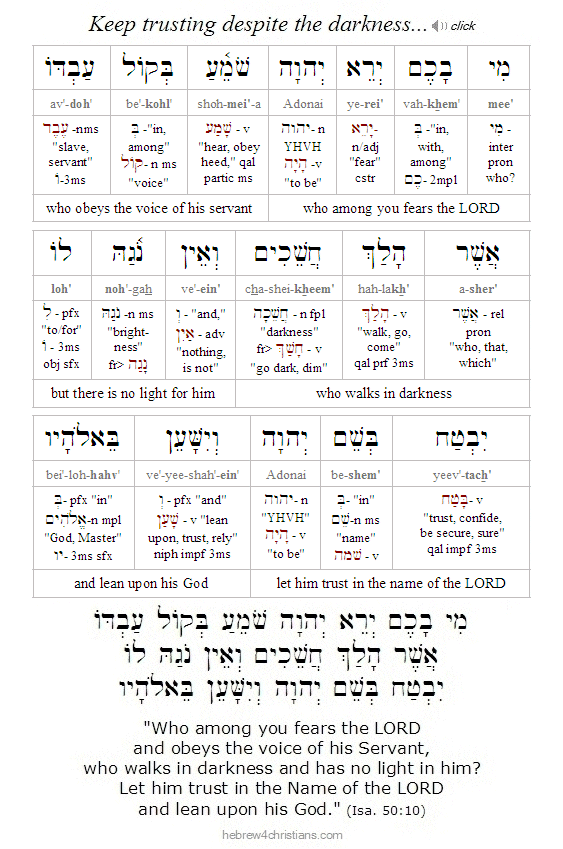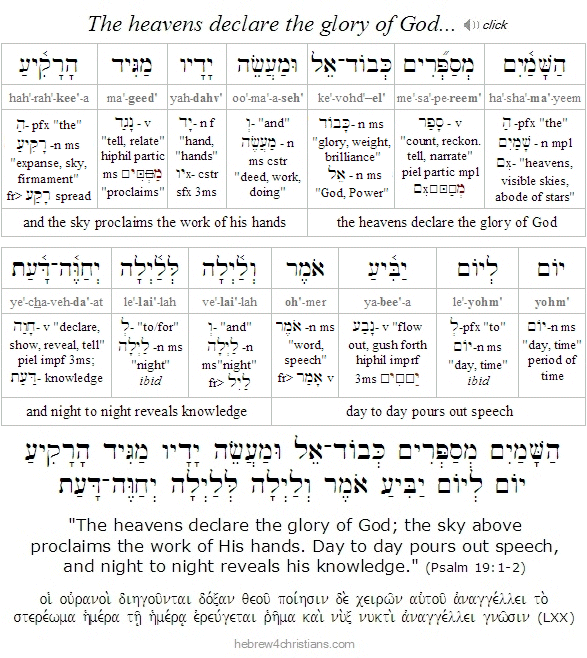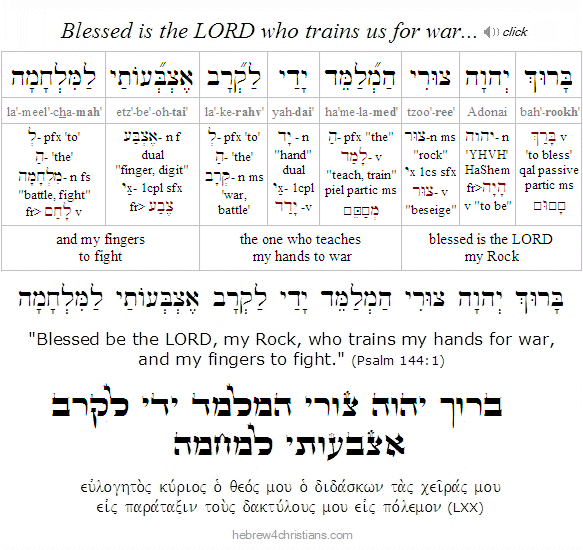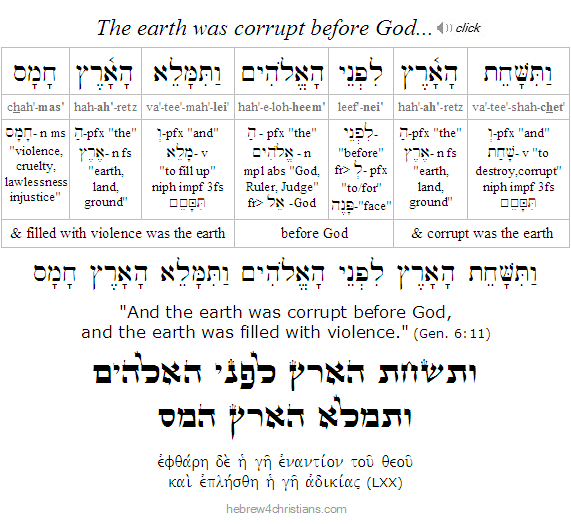|
November 2022 Updates (continued)
Note: If any page content appears to be missing, please refresh the page...
Our Need for Vigilance...

11.07.22 (Cheshvan 13, 5783) Yeshua forewarned of the moral depravity that would pervade mankind just before the time of his return: "Because lawlessness (i.e., ἀνομία, from -α ('not') + νομος, 'torah') will be increased," he said, "the love of many will grow cold (i.e., ψύχομαι, 'be extinguished')" (Matt. 24:12). Note the link between Torah and love: true love requires respect for God's authority, for without that the divine image is disfigured and desecrated. Likewise the Apostle Paul said the "End of Days" (אַחֲרִית הַיָּמִים) would be marked by "times of peril" (καιροὶ χαλεποί) because people would become increasingly narcissistic, self-absorbed, infatuated with their own self-importance, abusive toward others, disrespectful to elders, ungrateful, heartless, unforgiving, without self-control, brutal, treacherous, and so on (2 Tim. 3:1-4). When Paul said "times of peril," he used the same word (χαλεποί) that described the character of the demonaics mentioned in Matthew 8:28. Therefore, in light of the spiritual war that is raging all around us, it is vital that we remain firmly rooted in what is real by taking hold of our identity and provision as children of God. As it is written:"God has not given us the spirit of fear, but of power (גְּבוּרָה / δύναμις) and of love (ἀγάπη), and of a "sound mind" (σωφρονισμός), i.e., a "delivered" mind, "healed" from carnal fears (2 Tim. 1:7). We are not to be troubled like the world that lives in terror of man, nor are we to crave "security" from the vain (and deceptive) devices of mere men (Jer. 17:5). No - we must look to God Almighty, the Master of the Universe. He alone is our Refuge and Defense, the One who gives us steadfast love in the midst of these storms.
"For you yourselves are fully aware (i.e., ἀκριβῶς οἴδατε, "you carefully know") that the Day of the LORD (יוֹם־יְהוָה) will come like a thief in the night" (see Matt. 24:42; 2 Pet. 3:10; Rev. 3:3; 16:15). While people are saying, "There is peace and security," then sudden destruction will come upon them as labor pains come upon a pregnant woman (i.e., the birthpangs of Mashiach: חֶבְלֵי מָשִׁיח), and they will not escape. But you are not in darkness, brothers, for that day to surprise you like a thief" (1 Thess. 5:2-4). Note that a characteristic of this season will be a emphasis on "peace" and "security," that is, setting up a ubiquitous security grid that will monitor people... In light of this, "let us not sleep, as others do, but let us keep awake and be sober.. having put on the breastplate of faith and love, and for a helmet the hope of salvation (ἐλπίδα σωτηρίας). For God has not destined us for wrath, but to obtain deliverance through our Lord Yeshua the Messiah" (1 Thess. 5:6-9).
Hebrew Lesson:
Isaiah 43:1b reading (click):
Strength for the Journey...
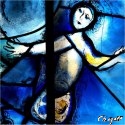
11.07.22 (Cheshvan 13, 5783) "And he opened his mouth and taught them, saying... 'Blessed are those who mourn, for they shall be comforted' (Matt. 5:4). Mourning is the expression of care, the voice of pain, the sorrow of a broken heart. Those who mourn care deeply; they feel the weight of loss; they grieve over sin. Such sorrow expresses the longing to be released from inner sickness of evil, as Yeshua said: "from within, out of the heart of man, come evil thoughts..." (Mark 7:21). Our own evil desires convict us of the truth... Here there is no place left to hide, no rationalization, no vain hope for self-reformation - just the raw realization of our fatal condition and the appeal for God's mercy in Yeshua. Mourning over our sins draws us to God, to the Comforter who "comes alongside" to bind up the broken heart. The danger remains, however, for those who deny their sin and refuse to mourn, since they are made blind to their need for forgiveness and comfort (John 9:41). How shall God be able in heaven to dry up your tears when you haven't wept?
One of the great tests of faith is learning to "endure yourself" as your inner character is being transformed... To do so, you must receive the miracle of Yeshua. You must look beyond the realm of appearance, where the "outward man" perishes, to the realm of ultimate healing, where the "inward man" is finally liberated from the ravages of sin and death. This is the comfort we have in our affliction: God's promise revives our hearts to say, "I know that my Redeemer lives, and at the last he will stand upon the earth" (Job 19:25). Even in the "shadow of the valley of death" (i.e., this moribund and broken world), God comforts us with His Presence (Psalm 23:4). We are given this great promise: "Just as we have borne the image of the man of dust, we shall also bear the image of the man of heaven" (1 Cor. 15:49).
Many seem to want healing apart from the cure. How many of us settle for half-measures? While you might find respite for your suffering in temporary measures, you cannot have lasting healing apart from the divine remedy... Nonetheless, the Lord our God gives us special graces, especially in light of the passing of days, with thwarted hope, aching bones, and inner keening for lasting deliverance. This "gift of despondency" helps us to awaken and to reach out to find the Real, the True, the Eternal. Learn to wait; ask God for the wisdom of patience. Between acceptance and anxiety, always choose acceptance. Find hope while waiting...
זאת נֶחָמָתִי בְעָנְיִי כִּי אִמְרָתְךָ חִיָּתְנִי
zoht ne-chah-mah-tee ve-ohn-yee
kee eem-rah'-te-khah chee-yaht'-nee

"This is my comfort in my affliction,
that your word gives me life." (Psalm 119:50)

Hebrew Study Card
Seeing by Faith...
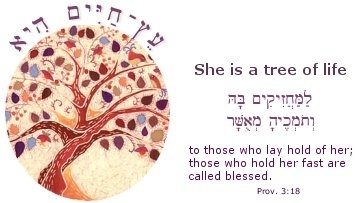
11.07.22 (Cheshvan 13, 5783) "And the LORD appeared (וַיֵּרָא) to Abram and said, "To your offspring I will give this land" (Gen. 12:7). Note that this was the first time God actually appeared to Abram, since earlier he had only "heard" God say to him, "Go from your country and your kindred and your father's house to the land that I will show you" (Gen. 12:1). In other words, it was only later - after Abram had obeyed God's voice by making the move to Canaan - that the LORD appeared to him and an altar was established (Gen. 12:7-8). As long as he remained with his father Terach in the City of Haran (the last outpost of Mesopotamia), he was in a place of delay, unable to behold the Divine Presence. Abram first had to act on what he knew before he was given confirmation by God (John 13:17). Perhaps that is why the very first place Abram came to in the promised land was the "Oak of Moreh" (אֵלוֹן מוֹרֶה), or the "Teaching Tree." Abram was taught to believe in order to understand, not to understand in order to believe....
Notice, however, that Abram was immediately tested once he arrived in the promised land. After building another altar and calling upon the name of the LORD (Gen. 12:8), a severe famine tempted him to look for food in the land of Egypt. After leaving the land of promise, Abram willingly forfeited his identity (i.e., he denied he was Sarai's husband) and found himself powerless as his wife was abducted into Pharaoh's harem. The LORD intervened on his behalf, however, and plagued Pharaoh and his household with great plagues, which surely prefigured the future time of the great Exodus during the time of Moses...
In this connection we further note that the next time the Torah states that the LORD appeared to Abram was after he had returned from Egypt, after rescuing Lot from the kings of the east, when he encountered the mysterious Malki-Tzedek (מַלְכִּי־צֶדֶק) in Salem. After this dramatic encounter, Abram separated his clan from his nephew Lot and returned to the first altar he built in the promised land (Gen. 13:4).
Hebrew Lesson:
Proverbs 3:18 Hebrew Reading (click):
God Provides the Lamb...
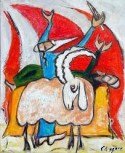
11.06.22 (Cheshvan 12, 5783) Our Torah reading for this week (Vayera) is very dramatic and extraordinarily prophetic. Among other things it includes what I have called the "Gospel according to Moses," that is, Moses' account of how Abraham was tested by God to offer his "only begotten son" (בֵּן יָחִיד) Isaac as a sacrifice on Mount Moriah -- the place of the future Temple. This famous story is referred to as the Akedah (עֲקֵדָה), or Akedat Yitzchak (עֲקֵידָת יִצְחָק) - the "binding of Isaac" (Gen. 22:1-18). At the very last moment, the Angel of the LORD stopped Abraham from going through with the sacrifice and provided a ram as a substitute. Abraham then named the location Adonai-Yireh (יהוה יִרְאֶה), "the LORD will provide/see" (from the 3ms imperfect of the verb ra'ah (רָאָה), "to see"). The binding of Isaac perfectly illustrates both the principle of sacrificial love and the principle that we must first unreservedly believe in that love in order to understand the ways of the LORD.
Those who believe in Yeshua understand the Akedah as a foreshadowing of the ultimate sacrifice the heavenly Father would give on our behalf. Unlike Abraham, God the Father actually offered His only begotten Son (בֵּן יָחִיד) at Moriah in order to make salvation available for all who will believe (John 3:16-18; 1 John 4:9). As Abraham himself confessed: אֱלהִים יִרְאֶה־לּוֹ הַשֶּׂה / Elohim yireh-lo haseh ("God will provide for himself the lamb").
Hebrew Lesson:
Genesis 22:8a reading (click):
As I've mentioned over the years, the very first occurrence of the word love in the Scriptures (i.e., ahavah: אַהֲבָה) refers to Abraham's love for his "only" son who was to be sacrificed as a burnt offering on Moriah (the very place of the crucifixion of Yeshua), a clear reference to the gospel message (Gen. 22:2; John 3:16). Some scholars have noted that the word ahavah comes from a two-letter root (הב) with Aleph (א) as a modifier. The root means "to give" and the Aleph indicates agency: "I" give (i.e., the Father gives). Love is essentially an act of sacrificial giving... The quintessential passage of Scripture regarding love (αγαπη) in the life of a Christian is found 1 Corinthians 13: "Love seeks not its own..."
Whereas the Akedat Yitzchak foreshadowed God's provision for the coming Temple, the Akedat Yeshua (i.e., the crucifixion of Yeshua at Moriah) was the altar where the justice and chesed (love) of the Father fully met (Psalm 85:10). For more on this incredibly rich subject, please see the articles, "The Passion of Isaac" and "The Sacrificed Seed."
Hebrew Lesson:
Genesis 18:1a reading (click):
Life Before Death....

11.04.22 (Cheshvan 10, 5783) Some people wonder whether there is life after death but they often ignore the more pressing question of whether there is life before death... Our Lord Yeshua said, "I am come so that people may have life, and that may have it abundantly" (John 10:10). So let's not wait until we die to learn what it means to live! The question for the present hour is whether we are really alive from the dead. In its truest sense, teshuvah (i.e., repentance) isn't so much about turning away from sin as it is turning to the light, embracing reality, and being entirely honest with ourselves.
"Any time you are with anyone or think of anyone say to yourself: I am dying and this person too is dying, attempting the while to experience the truth of the words you are saying" (de Mello). Amen, wise words. As we remember our common frailty, our hearts will be softened and our relationships will be sanctified. Shabbat shalom.
Hebrew Lesson
Psalm 90:12 Hebrew reading (click):
Torah of Sorrows...

[ We are grieving the loss of my brother-in-law's precious two month old son Nikolai today... ]
11.04.22 (Cheshvan 10, 5783) The Scriptures are filled with desperate cries of the heart... "How long, O LORD? Will you forget me forever? How long will you hide your face from me? How long must I take counsel in my soul and have sorrow in my heart all the day?" (Psalm 13:1-2). "Make haste to help me, O LORD, my salvation!" (Psalm 38:22). "My soul melts away from grief; strengthen me according to your word" (Psalm 119:28). "Answer me quickly, O LORD! My spirit fails! Hide not your face from me, lest I be like those who go down to the pit" (Psalm 143:7). God know that "hope deferred makes the heart sick" (Prov. 13:12), so there can be no turning to God, no teshuvah, apart from the presence of real hope (תִּקְוָה). Indeed, as the Apostle Paul wrote: "We are saved by hope" (Rom. 8:24).
The late Henri Nouwen wrote, "I am beginning to see that much of praying is grieving." Contrition, grief, and regret for our sins is at the heart of genuine teshuvah. Crying is a expression of utter humility, helplessness, and need. In this life we weep over many things, but we inwardly cry for our Abba, our heavenly Father's love... "Whenever you find tears in your eyes, especially unexpected tears, it is well to pay the closest attention. They are summoning you to where you should go next" (Frederick Buechner).
"Whenever you find tears in your eyes, especially unexpected tears, it is well to pay the closest attention. God is speaking to you through them of the mystery of where you have come from and is summoning you to where you should go to next. (Frederick Buechner, Whistling in the Dark: 1988).
An old Jewish prayer, uttered somewhat wistfully, begins, "O Lord, I know that Thou wilt help us; but wilt Thou help us before Thou wilt help us?" It's not always easy to wait for God, especially when we are in pain, sorrow, or anxiety, but we must never, ever, give up; we must never ever, abandon our heart's longing for ultimate healing. Faith exercises hope in the Reality, Substance, and Being (ὑπόστασις) of the Invisible and is made captive to undying hope (Heb. 11:1). Therefore the Spirit cries out: "Hope to the LORD; be strong and strengthen your heart; and (again) hope to the LORD" (Psalm 27:14). "Blessed are you, LORD our God, King of the Universe, who walks with the wounded" (שֶׁהוֹלֵךְ עִם הַפְצוּעִים).
Hebrew Lesson:
Psalm 119:28 Hebrew Reading (click):
Sanctified by His Grace...
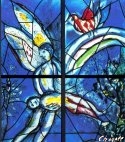
11.04.22 (Cheshvan 10, 5783) Yeshua said: "I am the vine; you are the branches. Whoever lives in me and I in him, he it is that bears much fruit, for apart from me you can do nothing" (John 15:5). Note that the spiritual life of Messiah flows from our connection with him, though the very possibility for that connection is the blessing of grace...
We cannot create the new birth by means of moral reformation, since the divine life is a miracle from above and not the result of human agency or aspiration (John 1:13; John 3:6). If we "live in" Yeshua we will bear fruit - our spiritual connection or "union" with him is sufficient for every good work, but only fruit that derives from the life of Messiah will abide (1 John 2:17). Good works are a necessary consequence of regeneration in Messiah, but by themselves they are insufficient and something more is needed (Matt. 7:21-23). Therefore the Scriptures point to the salvation of God and his grace as the efficient cause for the miracle of newness of life: "Not by works of righteousness which we have done, but according to his mercy he saved us..." (Titus 3:5); "for by grace are you saved through faith, and that not of yourselves (τοῦτο οὐκ ἐξ ὑμῶν), it is the gift of God" (Eph. 2:8); "so if it is by grace, it is no longer on the basis of works; otherwise grace would no longer be grace" (Rom. 11:6).
Grace and human effort are mutually exclusive when it comes to life from above: "It is the Spirit that gives life (τὸ πνεῦμά ἐστιν τὸ ζῳοποιοῦν); the flesh (i.e., human nature) is no help at all" (John 6:63). There is a new "center" of identity within the heart: "I is no longer I who live..." (Gal. 2:19-20). We do not appeal to God for mercy based on our best efforts, but like father Abraham we believe that God brings life to the dead. In short we believe that "salvation is of the LORD" (יְשׁוּעָתָה לַיהוָה), that is, that God justifies the ungodly and performs the inner work of salvation on our behalf and for our healing (see Rom. 4:1-5:2).
As C.S. Lewis once said in this connection: "The Christian is in a different position from other people who are trying to be good. They hope, by being good, to please God if there is one; or -- if they think there is not -- at least they hope to deserve approval from good men. But the Christian thinks any good he does comes from the Christ-life inside him. He does not think God will love us because we are good, but that God will make us good because He loves us; just as the roof of a greenhouse does not attract the sun because it is bright, but becomes bright because the sun shines on it" (Mere Christianity). Nevertheless we must not confuse cause and effect. The work of God is to believe in Yeshua (John 6:29) and we then learn to "work out" what God has "worked in" to our hearts by faith, as it says, "work out your own salvation with fear and trembling, for it is God who works in you, both to will and to work for his good pleasure" (Phil. 2:12-13). God who has performed a good work in you will "confirm you to the end blameless in the Day of our Messiah Yeshua" (1 Cor. 1:8; Jude 1:24-25).
יהוה תשׁפת שׁלום לנו
כי גם כל־מעשׂינו פעלת לנו
Adonai · teesh·poht · shah·lom · lah'·noo
kee · gam · kohl-ma·a·sei'·noo · pah·al'·ta · lah'·noo

"O LORD, you will ordain peace for us,
for you have indeed done for us all our works." (Isa. 26:12)

Hebrew Lesson:
Isaiah 26:12 Hebrew Reading (click):
The Original Priesthood...
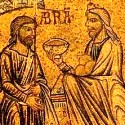
[ The following entry is related to this week's Torah reading, parashat Lekh-Lekha.... ]
11.04.22 (Cheshvan 10, 5783) Our Torah reading this week reveals that the very first "priest" (i.e., kohen: כּהֵן) was neither a Jew nor a Levite nor a descendant of Aaron, but rather Someone who is said to have "neither beginning of days nor end of life" but was made like (ἀφωμοιωμένος) the Son of God, a priest continually (Heb. 7:3). This priest, of course, was Malki-Tzedek (מַלְכִּי־צֶדֶק), the King of Shalem (מֶלֶךְ שָׁלֵם) to whom Abraham offered tithes after his victory over the kings (see Gen. 14:18). The author of the Book of Hebrews makes the point that the priesthood of Malki-Tzedek is greater than the Levitical priesthood and is therefore superior to the rites and services performed at the Tabernacle (Heb. 7:9-11). It was to Malki-Tzedek that Abraham (and by extension, the subsequent Levitical system instituted by his descendant Moses) gave tithes and homage -- and rightly so, since Yeshua is the great High Priest and Mediator of the ultimate covenant based on God's eternal life (Heb. 8:6).
Hebrew Lesson
Genesis 14:19b reading (click):
For more on this subject, see the article, "Exploring the Identity of Malki-Tzedek."
Teshuvah of Abraham...
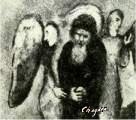
11.04.22 (Cheshvan 10, 5783) I had mentioned that "lekh-lekha" (לך־לך) can be understood as a command to "come to yourself," that is, to turn and reconnect to your spiritual essence, though it can also be understood as a command to "go out of yourself," that is, to escape from the bondage of your carnal ego... This corresponds to teaching in the New Testament where we are commanded to both "put on" our new spiritual identity as God's beloved, and to "put off" the old self by being revived in our minds (Eph. 4:22-24). Both "movements" are the heart are necessary: we must turn to the Lord and receive his blessing (inward), and we must turn away from what has previously defined us (outward). We die to ourselves and come back to life; we cross out the old and walk in the new...
The Jewish philosopher Emanuel Levinas said that the reason it is hard to "go out of yourself" has to do with an overwhelming sense of inertia that collapses into passivity of the soul. We get "comfortably numb" and resist waking up. When the heart miraculously becomes "elected," however, as when Abraham heard and believed God's promise, it comes alive before the Divine Presence, and by extension, it is empowered to go out of itself in blessing others. The process of sanctification puts away the old self that is lost within itself by consciously turning to spiritual reality and truth.
There has to be a starting point, however, a "conversion" of the heart that marks the transition from old to new. Abraham is our model. He did not simply make a journey away from home that eventually circled back to what he knew before - the security and history that had defined him. No, his break from his former life was radical and changed his direction forever. It was a "crossing over" into newness of life. Beyond the dimension of the physical world, Abraham's journey was one of inner transformation, and therefore it was a journey into the unknown. He was made a "stranger" and a sojourner in this world. Unlike the Aristotelian view that sees an "end" or telos (purpose) embedded within natural processes, God revealed to Abraham the glory of the transcendental world, incalculable in its beauty, depth, goodness, and holiness. Being "elected" or "chosen" by God is to bear witness of the sanctity of life by "forgetting what lies behind and straining forward to what lies ahead," striving to attain the high calling of God in the Messiah.
Hebrew Lesson
Psalm 4:3 reading (click):
The Journey of Faith...
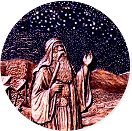
[ The following entry is related to this week's Torah reading, parashat Lekh-Lekha.... ]
11.03.22 (Cheshvan 9, 5783) Each of us has been created by God for a sacred purpose. There is a deep reason why you were born. This explains why we sometimes feel lost and alone in this life. Our discontent, the fracture we sense both within and around us, our sorrows, suffering, and inevitable losses, all of it together, presents a "message" to our souls, a "basso profundo" groan of the heart, a visceral yearning for healing, for eternal life, for heaven... God has created us for himself, yet we find no lasting peace apart from him (Eccl. 3:11). Or as Augustine of Hippo famously put it: "Thou hast made us for thyself, O Lord, and our heart is restless until it finds its rest in thee" (Confessions). Therefore our Lord cries out to those who are hurting, troubled, and afraid: "Come to me, all who labor and are heavy laden, and I will give you rest. Take my yoke upon you, and learn from me, for I am gentle and lowly in heart, and you will find rest for your souls" (Matt. 11:28-29).
Our Torah portion for this week is called "Lekh-Lekha," which can be translated as "come to yourself," that is, turn and reconnect to your spiritual essence, your identity, your heart. We have to start the journey there, because ultimate reality is intensely personal, being grounded in the "who-ness" of God. It is within the consciousness of our own "I am," our deepest identity as a personal, thinking, and feeling being, that we are able to relate to the person and heart of the great "I AM" of the LORD.
Abram is an exemplar of faith for us; he is called the "father of faith" (Isa. 51:1-2; Rom. 4:16; Gal. 3:29). Abram courageously searched for God in his emptiness, and God graciously answered the cry of his heart. He left everything behind as he journeyed into the realm of promise - regarding himself as someone chosen to know God's blessing and grace. Abram was able to walk by faith because he stopped listening to the voices of the ego - the worldly and unbelieving parts of himself - and therefore was able to hear God's truth.
According to the classical sages, Abram was tested ten times in the course of his life. In the first test, Abraham was asked to "go to a land that I will show you" only to find it a place of famine and trouble. In the last of the tests, Abraham was asked to "go to the land of Moriah, to the place that I will show you," and there to offer up his promised son Isaac as a burnt offering... In each case the temptation was to give up hope in God's promise, since at the time of each test Abram did not know the outcome as a foregone conclusion. Nevertheless Abram walked in faith, in fear and trembling, yet fear contextualized by the deeper strength found in God's love and presence. Abraham had to close his eyes to this world and walk in the darkness of faith to see the divine light that transcends this realm; he had to "believe to see" that God's promise was sure.
So the journey is one of faith and the inner transformation that comes from trusting in God (בִּטָּחוֹן). "Go from your country and your kindred and your father's house to the land that I will show you" is the call of teshuvah - turning away from enslaving habits that deaden our consciousness - and to come alive by believing that which transcends own understanding. The Greek word for repentance, "metanoia" (μετάνοια) describes the process well, since it means going beyond ("meta") the habitual categories of the mind ("nous") to believe and apprehend the miracle of God. Faith discerns the unseen good that is at work behind the realm of appearances. God is the "Father of Lights" who supervises the ebb and flow of creation. He is always working to direct all things according to his purposes and will. This is the "land that I will show you," that is, the realm of blessing and eternal life.
Hebrew Lesson
Proverbs 4:18 reading (click):
Righteousness of Heart...
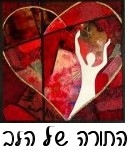
11.03.22 (Cheshvan 9, 5783) From our Torah reading for this week (Lekh-Lekha) we learn about the resolute faith of Abram who, despite his old age, trusted that God would make his descendants as numerous as the stars in the night sky: "And the LORD brought him outside and said, "Look toward heaven and count the stars, if you are able to number them." Then the LORD said to him, "So shall your offspring be. And he trusted in the LORD, and He regarded it to him as righteousness" (Gen. 15:6).
Abram "staggered not" at the promise of God, and therefore God imputed to him righteousness (צְדָקָה), a term understood here to be divine esteem and grace. After all, what could Abram do in the face of seeming impossibility? There was nothing he could do to bring about the miracle. The New Testament comments: "He did not weaken in faith when he considered his own body, which was as good as dead (since he was about a hundred years old), or when he considered the barrenness of Sarah's womb" (Rom. 4:19). It was in a state of utter powerlessness and complete helplessness that Abram retained hope and thereby received the promise by faith. "For he was beyond hope, yet in hope he trusted that he would indeed become a father to many nations, in keeping with what he had been promised, 'so shall your offspring be'" (Rom. 4:18).
Understand that 400 years before the law was given at Sinai, the LORD regarded the faith of Abram as the heart of the righteousness later prescribed by the Torah. Therefore the very First Commandment of the Ten Commandments is simply: Anochi Adonai Elohekha (אָנכִי יְהוָה אֱלהֶיךָ): "I AM the LORD your God" (Exod. 20:2), which repeats the call to trust God before everything else, since it is complete surrender to the love and grace of God that justifies us, as it is written: "to the one who does not work but trusts in the One who justifies the ungodly (i.e. the helpless), his faith is counted as righteousness" (Rom. 4:5).
Where the LORD says "Look toward heaven and count the stars, if you are able to number them," we note the Hebrew word "count" (סָפַר) may also mean "recount," "interpret," or "explain"... This is the same word used in the famous verse, "The heavens declare (מְסַפְּרִים) the glory of God" (Psalm 19:1). The idea here would be not merely that Abram would have lots of descendants, but they would shine in brilliance against the backdrop of the darkness. Abram's children would be lights upon the earth, declaring the truth of God and enlightening the darkness of mankind. "And those who are wise shall shine like the brightness of the sky above; and those who turn many to righteousness, like the stars forever and ever" (Dan. 12:3). In the same way, "let your light shine before others, so that they may see your good works and give glory to your Father who is in heaven" (Matt. 5:16; 13:43).
Hebrew Lesson
Genesis 15:6 reading with commentary (click):
Crossing Over to Life...
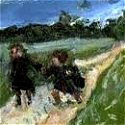
[ I will be at the funeral for my brother-in-law's precious two month old son today... ]
11.03.22 (Cheshvan 9, 5783) Our Torah portion this week (i.e., Lekh-Lekha) begins: "Now the LORD said to Abram, "Go (לֶךְ־לְךָ) from your country and your kindred and your father's house to the land I will show you" (Gen. 12:1). The Book of Hebrews comments, "By faith Abraham obeyed when he was called to go out to a place that he was to receive as an inheritance, and he went out, καὶ ἐξῆλθεν μὴ ἐπιστάμενος ποῦ ἔρχεται - "not knowing where he was going" ... for he was looking forward to the city that has foundations, whose designer and builder is God" (Heb. 11:8,10).
Abraham closed his eyes to this world and was given the inner light of truth that would reveal his way to God. The Sefat Emet says that every person of faith is likewise commanded daily to "lekh-lekha," to "go for yourself" by crossing over from the world and its deadening habits to live as an exile with God.
Paradoxically, we find ourselves when we lose ourselves - when we leave behind the labels, roles, ideologies, and identities this world foists upon us and instead resolve to seek the promise of God's Kingdom. As Yeshua said, "For whoever will save his life shall lose it, but whoever will lose his life for my sake shall find it" (Matt. 16:25).
Hebrew Lesson:
Psalm 25:12 reading (click):
Note: In a sefer Torah (i.e., a handwritten Torah scroll), Hebrew words are written without vowels, so "lekh lekha" (לך־לך), often translated as "go forth," could be read as "go, go!" - emphasizing the importance of the mitzvah: Get moving! Start walking! Begin your journey!
Reasons of the Heart...
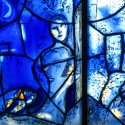
[ "God is too good to be unkind and He is too wise to be mistaken. And when we cannot trace His hand, we must trust His heart... The sweetest prayers God ever hears are the groans and sighs of those who have no hope in anything but his love." - Charles H. Spurgeon ]
11.02.22 (Cheshvan 8, 5783) When I don't understand why God allows terrible suffering to occur, I'm careful to review who God is before surrendering to feelings of despair.
When you're convinced that the Lord is your Good Shepherd who faithfully guides your way, you can trust in his good will for you, even if you are in darkness and have no light (Isa. 50:10; Prov. 3:5-6).
Who before why... First know God's heart and then (perhaps) you will be able to seek understanding. In cases of great tragedy and loss, however, no rationalization or explanation will likely suffice, and we are therefore left with the raw decision of whether we will trust in God, even in our darkness, and in our sorrows, and apart from understanding...
Thomas Aquinas once wrote: "To one who has faith, no explanation is necessary; to one without faith, no explanation is possible." This is because, as Blaise Pascal said, "the heart has its reasons that reason knows not. " Amen, seek first the Kingdom of God and then you will know. We must believe in God's heart first of all...
Hebrew Lesson
Isa. 50:10 reading (click):
Irrepressible Truth...

[ "If there were no eternal consciousness in a man, if at the bottom of everything there were only a wild ferment, a power that twisting in dark passions produced everything great or inconsequential; if an unfathomable, insatiable emptiness lay hid beneath everything, what would life be but despair?" - Soren Kierkegaard ]
11.01.22 (Cheshvan 7, 5783) Those who deny that objective truth exists (or those who deny that something may be known about reality) are themselves making a truth claim, namely the claim that there is no such thing as objective truth (or that real knowledge of the world is not possible). This self-inflicted incoherence is a sign of irrationalism, of course, the abandonment of reason, which perhaps is the ulterior motive for such manner of thinking, after all. The person who denies truth does so to escape the demands of truth – to flee from personal responsibility before moral and spiritual Reality. It is a form of "wish-fulfillment" to say that people are not responsible for what they believe and how they live their lives. Hence our culture's obsessive "busyness," its craving for ongoing diversion, entertainment, fantasy, escapism, and so on. Our generation finds evil in "boredom" and finds nothing of lasting interest because it has forsaken the big questions of life and the pursuit of truth. Popular culture encourages apathy, indifference, and seeks to enslave people to thrills (and fears) of the present moment... The ancient pagan world at least esteemed honor and believed in the pursuit of virtue and truth, but today's post-Christian world is nihilistic, anarchist, and therefore marks a return to barbarism.
What you say about the present state of mankind is true: indeed it is even worse than you say. For they neglect not only the Law of Christ, but even the Law of Nature as known by the Pagans. For now they do not blush at adultery, treachery perjury, theft and other crimes, which I will not say Christian doctors, but the Pagans and Barbarians have themselves denounced. They err who say: "The world is turning pagan again." Would that it were! The truth is, we are falling into a much worse state. Post-Christian man is not the same as pre-Christian man. He is as far removed as a virgin from a widow ... there is a great difference between a spouse-to-come and a spouse sent away. (C.S. Lewis: Latin Letter 23, 1953)
The unintelligible claim that truth does not exist is not unlike the the incoherent claim that there is no God, no Supreme Being, and no Primordial Intelligent Cause for all that exists. For an atheist to seriously claim there is no being in any possible world that fits the description of "God," he or she would have to be omniscient, omnipotent, and indeed exercise the very attributes of the Being which is denied to anywhere exist! Alas, the skeptical mind finds itself in ironic reversal, "hoisted upon its own petard."
Hebrew Lesson:
The War for Our Souls...
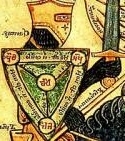
11.01.22 (Cheshvan 7, 5783) There is a great war going on, but it's not a war waged with conventional weapons. This is the war for the souls of human beings, and every person alive is currently engaged in it... There is no place of neutrality in this war, and you cannot escape from the conflict. The enemy is now at the gate, the battle lines drawn. Pastors are being arrested around the world for holding church services; civil liberties and freedoms are being striped away from us in the name of state "security" for the "greater good." Passivity or indifference is not an option, and therefore each of us must choose. We are either going forward or going backward; we are either drawing near or pulling away (Rev. 3:16). The question is now made urgent: מי ליהוה אלי - mi Adonal aylai? "Who is on the Lord's side?"
The apostle Paul wrote about this great war when he said: "For though we walk in the flesh (i.e., as mortal men), we are not waging war according to the flesh (i.e., in human terms). For the weapons of our warfare are not of the flesh but have divine power to demolish strongholds. We destroy arguments and every lofty opinion raised against the knowledge of God, and take every thought captive to the truth of Messiah" (2 Cor. 10:3-5).
Successful spiritual warfare is waged in the spirit realm, not relying on physical means at all, but trusting in the power of God and the weapons he gives to demolish "strongholds" where evil is deeply rooted (the word "stronghold" is better translated as "fortress," a metaphor for militant prejudice that attempts to justify godlessness). In the profane world, these strongholds are expressed in the reasoning (i.e., λογισμός, "logic") and "arrogant opinions" (i.e., ὕψωμα, pretenses) of the godless heart that are distilled into a dark vanity called "the wisdom of this world" (1 Cor. 3:19). The phrase "every lofty opinion raised against the knowledge of God" refers to the various devices of the heart and mind that erect obstacles to the knowledge of the truth revealed in the Messiah. Such obstacles are affirmed daily in the treacherous news of this world that reinforce godless assumptions and ongoing deception. We must use active discernment to identify the fallacies and misleading schemes promulgated by the world system by "taking every thought captive" to the glorious truth of the Messiah.
This is the good fight of faith (1 Tim 6:12). The fight is "good" because it turns on the victory and glory of the Lord who shares his overcoming life with us. The battle belongs to the Lord; the victory has been secured (Psalm 84:11; Rom. 8:37-39). Always remember that we never fight for, but always from, the place of His victory, standing our ground in the sufficiency of God's power given to us (Luke 10:19). We must be sober and vigilant (1 Pet. 5:8-9); we must stay focused and persevere in the truth (2 Tim. 2:4). God gives us the "armor of light" that blinds the eyes of powers of darkness. We must not be afraid but stand firm in the strength given to us by the Spirit of God (Zech 4:6; Eph. 6:11-18). The Lord will help us in the battle (2 Thess. 3:3; Deut. 3:22). "No weapon that is fashioned against you shall succeed, and you shall refute every tongue that rises against you in judgment. This is the heritage of the servants of the LORD and their vindication from me, declares the LORD" (Isa. 54:17).
Hebrew Lesson
Psalm 144:1 reading (click):
Shadows and Reality...

[ "Whether evil or good events betide, let it be the same to you, since you are a stranger and sojourner on this earth. Why have anxiety over a world that is not yours?" - Sassover ]
11.01.22 (Cheshvan 7, 5783) Sometimes we seem to forget that we are not home yet... The ancient thinker Socrates argued that philosophy, when done correctly, was "practice for death," since the passing shadows of this world pointed to an unchanging good, our true end. Likewise Yeshua our Messiah taught us to take up the cross and die daily (Luke 9:23). We are to "set our affections on things above, not on things on the earth," for we have died and our life is hidden with Messiah in God (Col. 3:2-3).
It is difficult for us to die, to let go, however, because we are deeply attached to this world, and we often abide under the worldly illusion that we will live forever, that tomorrow will resemble today, and that heaven can wait... History is littered with crumbling monuments offered to the idols of this world. The Scriptures are clear, however: "The present form (τὸ σχῆμα) of this world is passing away" (1 Cor. 7:31), and the heart of faith seeks a city whose Designer and Builder is God Himself (Heb. 11:10). "So we do not lose heart. Though our outer self is wasting away, our inner self is being renewed day by day... For the things that are seen are turning to dust, but the things that are unseen endure forever (2 Cor. 4:16-18). Because of our sin, creation was made "subject to vanity," though God has overcome the dust of death by giving us an unshakable hope (Rom. 8:20).
Hebrew Lesson:
Psalm 144:4 reading (click):
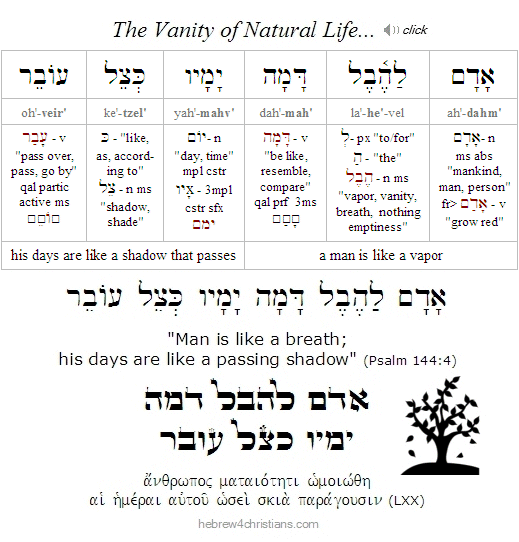 |
The metaphysical truth that ha'kol oveir (הַכּל עוֹבֵר), "everything passes" like a shadow, should help us keep our perspective regarding the various moments of testing we all face in this life. As Nachman of Breslov once said, "The whole earth is a very narrow bridge, and the important thing is never to be afraid" (כָּל־הָעוֹלָם כֻּלּוֹ גֶּשֶׁר צַר מְאד וְהָעִקָּר לא לְפַחֵד כְּלָל). Yeshua is the Bridge to the Father, the narrow way of passage that leads to life. He has overcome the meretricious world and its vanities. He calls out to us in the storm saying, "Take heart. It is I; be not afraid" (Matt. 14:27). When Peter answered the call and attempted to walk across the stormy waters, he lost courage and began to sink, but Yeshua immediately took hold of him, saying, "O you of little faith, why did you doubt (lit., think twice)?" Resist the false assumptions that surround common worldly consciousness: Keep focused on the reality of Yeshua and the way he reveals...
 |
As the Days of Noah...

11.01.22 (Cheshvan 7, 5783) "For as were the Days of Noah (ימֵי נחַ), so will be the coming of the Son of Man. For as in those days before the flood they were eating and drinking, marrying and giving in marriage, until the day when Noah entered the ark, and they were unaware until the flood came and swept them all away" (Matt. 24:38-9). Yeshua told us that the "Days of Noah" were marked by people who were asleep, blind, and unaware (ἔγνωσαν, "agnostic") of spiritual truth. They lived their days oblivious to Reality. They "forgot" who God was, who they were, why they existed, and where they were going. They engaged in deception, violence, theft, and rampant promiscuity. Such is our world today...
The deadening effects of sin leads to moral and spiritual blindness that leads to corruption and unthinking brutality and violence. Of Noah's generation it was written "The LORD saw that the wickedness of man was great in the earth, and that 'every intention of the thoughts of his heart was only evil continually' (כָּל־יֵצֶר מַחְשְׁבֹת לִבּוֹ רַק רַע כָּל־הַיּוֹם). And the LORD regretted that he had made man on the earth, and it grieved him to his heart... the whole earth was corrupt before God, and filled with violence" (Gen. 6:5-6, 11). Rashi understood the word "corrupt" (i.e., shachat: שָׁחַת) to primarily refer to sexual immorality (i.e., idolatry) and "violence" (i.e., chamas: חָמָס) to primarily refer to theft and robbery. In general, however, the sages regarded the word chamas to refer to lawlessness, that is the denial of moral reality, and consequently the benighted condition of living without yirat ha'shamayim (the fear of heaven). When people are spiritually dead, they are unconscious of the wonder of God; they are oblivious to what is real; and consequently they are debased into animals...
Hebrew Lesson:
Gen. 6:11 Hebrew reading (click):
<< Return
|







